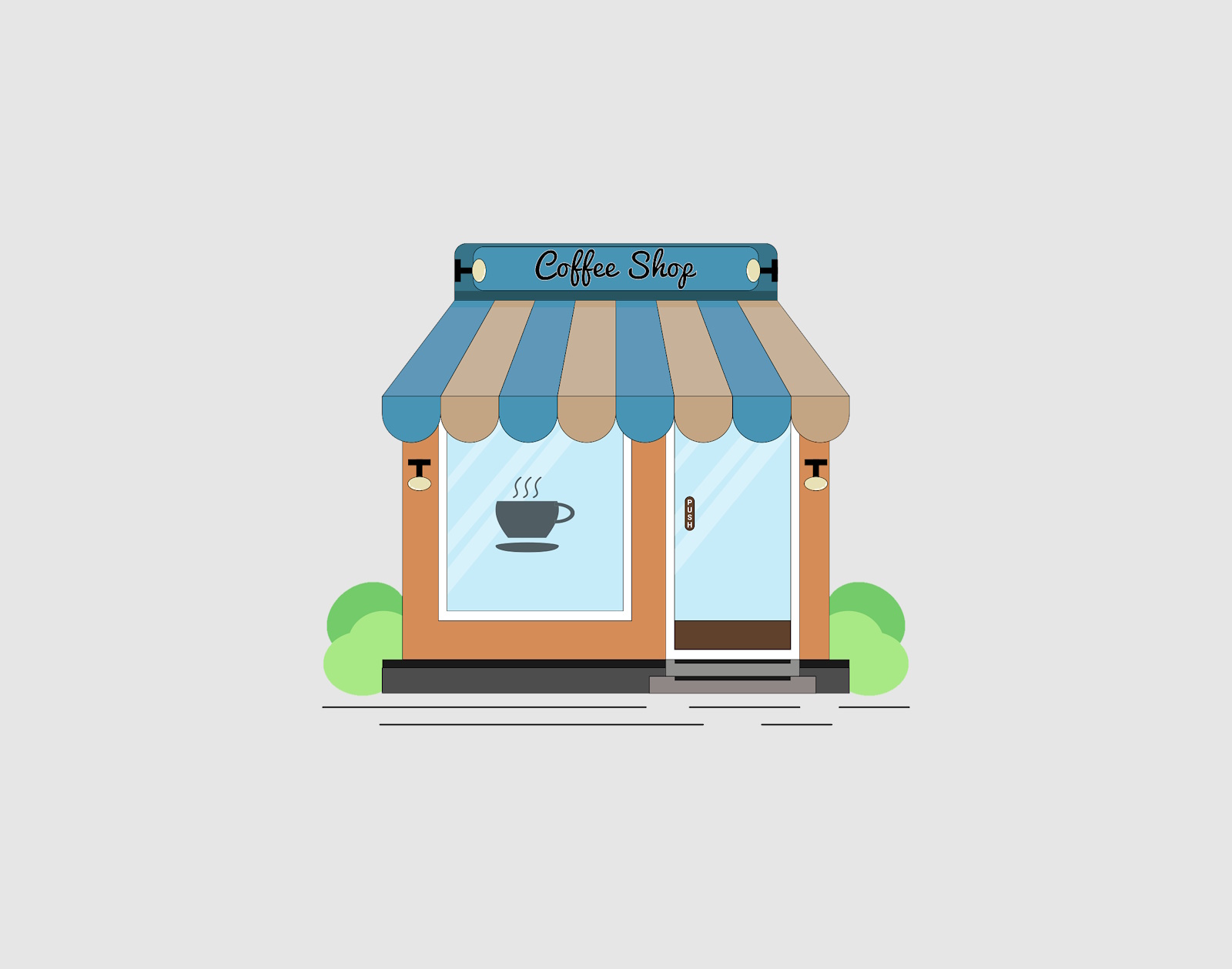How to Start an Online Coffee Shop

The coffee industry has become full of potential for entrepreneurs. Coffee is now more popular than bottled water, soft drinks, tea, and juice, making it a totally profitable venture. Whether you dream of a cozy brick-and-mortar shop or a dynamic online store, this guide equips you with the essentials to turn your vision into reality.
Contents:
- Step 1. Understand the Coffee Retail Industry Landscape
- Step 2. Define Your Target Audience
- Step 3. Craft a Business Plan
- Step 4: Calculate the Initial Investment in a Coffee Store and Equipment
- Step 5. Register Your Coffee Shop
- Step 6. Set Up Your Coffee Shop (Physical and Online)
- Step 7. Develop a Strong Marketing Strategy
- Step 8. Scale and Grow Your Business
- Conclusion
- Frequently Asked Questions
Step 1. Understand the Coffee Retail Industry Landscape
Trends and Opportunities
The 2023 National Coffee Data Trends Report reveals a surge in U.S. coffee consumption. An impressive 66% of Americans enjoyed coffee in the past day, that’s a 14% increase since January 2021.
Market Insights
Modern consumers crave unique coffee experiences, quality equipment, and sustainable practices. With an average daily intake of 3.1 cups per person and a preference for traditional drip coffee makers, the market for coffee and related equipment is robust, including opportunities for selling coffee from home.
Step 2. Define Your Target Audience
Determine whether your primary customers are coffee enthusiasts, offices, or cafes. Understanding your audience is key to tailoring your product selection and marketing efforts, especially when starting an online coffee business. The choice of product range depends on the audience - Will you specialize in premium coffee machines or budget coffee machines for offices.
Step 3. Craft a Business Plan
Include an executive summary, market analysis, product range, marketing strategy, and financial projections. This is particularly important for those considering selling coffee from home or starting an online coffee business.
Step 4: Calculate the Initial Investment in a Coffee Store and Equipment
Costs include the potential costs of leasing physical space (if you're considering a hybrid model), purchasing coffee and related equipment, allocating funds for marketing strategies, creating and maintaining a robust website, and covering day-to-day operating costs.
Step 5. Register Your Coffee Shop
To launch a store specializing in selling coffee and coffee-related equipment, you'll need to navigate through a series of licenses and permits. While the exact requirements can vary based on your location, there are several standard documents that are generally necessary, irrespective of your geographical area:
- Retail Business License
- Employer Identification Number (EIN)
- Certificate of Occupancy (indicating your store’s compliance with building codes)
- Retail Merchant's License (for selling goods)
- Health and Safety Inspection Certificate (if you’re offering coffee tastings or samples)
- Signage Permit (for your store’s signage)
- Various Insurance Policies (including General Liability Insurance, Property Insurance for the store, and Product Liability Insurance)
- Resale Permit (for buying coffee and equipment wholesale and reselling it)
- Food Handler’s Permit (if handling coffee for tastings or demonstrations)
Step 6. Set Up Your Coffee Shop (Physical and Online)

Location
For a physical store, select a location with good visibility and foot traffic. For an online store, focus on creating a user-friendly, appealing website.
Website
A well-designed website acts as the digital storefront for your coffee shop. It should be user-friendly, visually appealing, and informative, providing customers with a clear idea of what your coffee shop offers.
Step 7. Develop a Strong Marketing Strategy
To effectively engage with your target demographic, it's essential to develop detailed client profiles and identify the best channels for communication.
The digital marketing approach for coffee shops is influenced by factors like business scale, location, yet invariably involves online platforms.
Commonly utilized digital marketing avenues include:
Social Media: Leveraging social media effectively can be a powerful, budget-friendly marketing tool for coffee shops. In the current digital landscape, users gravitate towards concise, visually appealing content. Platforms such as Instagram, Facebook, and TikTok offer excellent opportunities for coffee shop owners to connect with their audience.
Online Reviews: For coffee shops, local visibility is crucial. Ensure your business is listed on Google My Business and other local directories. Encourage satisfied customers to leave positive reviews online, as these significantly influence potential customers' decisions.
SEO: Optimizing your online shop for search engines is an important strategy for increasing the visibility of your website in search engine results. This process is vital in today's digital marketplace as higher visibility usually leads to more traffic and therefore more customers. By implementing effective SEO strategies, your coffee shop can rank more prominently in search results when potential customers search for keywords related to coffee and coffee products. This enhanced online presence not only drives more traffic to your website, but also helps increase brand awareness and trust.

Email: These are valuable for promoting loyalty programs, seasonal specials, or events. It's important to avoid overwhelming your subscribers with excessive emails.
Step 8. Scale and Grow Your Business
Expanding Your Offerings: As your business grows, consider expanding your product range or exploring new markets.
Innovating and Adapting: Stay abreast of industry trends and customer preferences to keep your business dynamic and relevant.
Strategies for a New Coffee Shop
- Quality is Key: Success hinges on offering high-quality, consistent coffee. Gourmet coffee, representing 59% of daily consumption, highlights the importance of quality.
- Loyalty Programs: Rewarding repeat customers through loyalty programs, special offers, and social media engagement is crucial for building a loyal customer base.
- Diverse Revenue Sources: Beyond selling coffee, offering food, alternative beverages, various coffee products, and branded merchandise can boost profits.
- Focus on Excellence: Specializing in a few high-quality products can help establish your brand's reputation and customer loyalty.
- Value-Based Pricing: Set prices based on the perceived value of each product, considering market trends and competitor pricing.
- Superior Customer Service: Fast, friendly, and efficient service enhances customer satisfaction and loyalty.
- Understand Customer Needs: Recognize that your brand fulfills deeper customer needs, such as comfort or sustainability, and tailor your offerings accordingly.
Product Expansion Ideas
- Whole bean and ground coffee
- Keurig-compatible cups and pods
- Cold brew packs
- Seasonal flavors
- Eco-friendly options like compostable cups
- Reusable coffee filters
- Coffee or travel mugs
- Gift cards
Conclusion
Opening a coffee and coffee equipment store is an exciting venture that combines passion for coffee with retail acumen. Focus on quality, customer experience, and a solid business foundation. Whether you opt for a physical storefront, an online shop, or a combination of both, adapt to market changes and embrace innovation to brew success in the vibrant world of coffee retail.
Frequently Asked Questions
The initial costs for starting an online coffee shop can vary widely but typically include expenses for website development, purchasing initial stock of coffee and equipment, marketing, and any necessary licenses or permits. Budgeting several thousand dollars is a prudent starting point.
You should review the FDA’s and your state’s regulations to double-check that you don’t need approval.
Considering that 64% of the USA states population drinks coffee and the global e-commerce market has been booming in recent years, the answer is yes.
